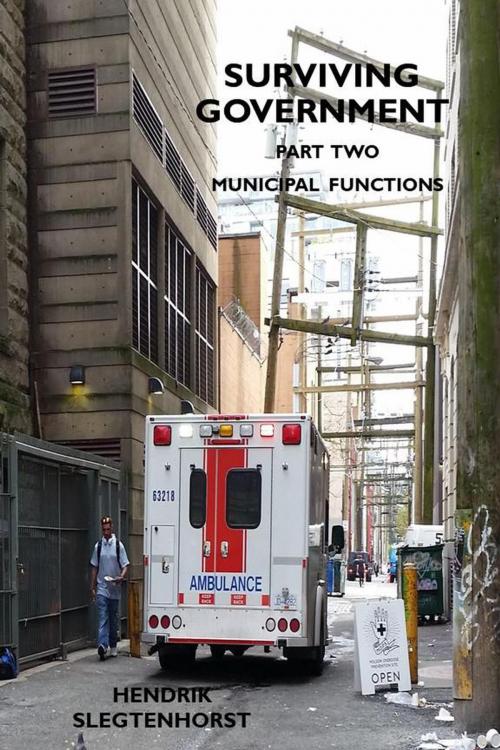Surviving Government: Part Two - Municipal Functions
Surviving Government, #2
Business & Finance, Business Reference, Government & Business, Biography & Memoir, Political, Management & Leadership, Management| Author: | Hendrik Slegtenhorst | ISBN: | 9781386714019 |
| Publisher: | Enlora Press | Publication: | March 3, 2019 |
| Imprint: | Language: | English |
| Author: | Hendrik Slegtenhorst |
| ISBN: | 9781386714019 |
| Publisher: | Enlora Press |
| Publication: | March 3, 2019 |
| Imprint: | |
| Language: | English |
Surviving Government presents an understanding of Canadian local government for the individual citizen, and how each citizen can influence, modify, and survive the decisions, actions, and effects of government.The work is in four volumes, each concentrating on one of four aspects of government: its powers, its functions, taxation, and political integrity.Its purpose is to provide an overview of the impact of public service, and the difficulty, but not the impossibility, of progress in a political context, with illustrations, some technical and some biographical, of how meaningful progress can be achieved, and what value such progress has for citizens and their community.
The second book considers the following functions of local government:
*strategic direction: what the government intends to implement, with or without consultation
*public services and public management: how and by whom the government intends to implement, with or without consultation
*policy: what government promises, whether it keeps to them or not
*policing: who and what gets protected from and for whom
*firefighting services: one of the bedrocks of public protection
*bylaws and resolutions: how government implements and controls its power and influence over the citizenry
*zoning: how government says land can be used and by whom
*collective agreements: what government pays to its unionized workers
*human resources: how government oversees its workforce
*privacy and access to information: what and how government keeps secret
The appendix in volume two, which follows in real time from the appendix in volume one, continues to relate the development of the personal context of my real-time experience as a chief administrative officer. My observations relate to the Maritime provinces, and the costs and demands of living there; living across the river from the United States; interaction with local institutions, businesses, developers, and media; recognition of citizens; working with politicians, employees, peers, and citizens; professional strategic planning; operational and capital budgets; physical demands of office; travels to Québec and Ontario; and discussions with Wotan.
Surviving Government presents an understanding of Canadian local government for the individual citizen, and how each citizen can influence, modify, and survive the decisions, actions, and effects of government.The work is in four volumes, each concentrating on one of four aspects of government: its powers, its functions, taxation, and political integrity.Its purpose is to provide an overview of the impact of public service, and the difficulty, but not the impossibility, of progress in a political context, with illustrations, some technical and some biographical, of how meaningful progress can be achieved, and what value such progress has for citizens and their community.
The second book considers the following functions of local government:
*strategic direction: what the government intends to implement, with or without consultation
*public services and public management: how and by whom the government intends to implement, with or without consultation
*policy: what government promises, whether it keeps to them or not
*policing: who and what gets protected from and for whom
*firefighting services: one of the bedrocks of public protection
*bylaws and resolutions: how government implements and controls its power and influence over the citizenry
*zoning: how government says land can be used and by whom
*collective agreements: what government pays to its unionized workers
*human resources: how government oversees its workforce
*privacy and access to information: what and how government keeps secret
The appendix in volume two, which follows in real time from the appendix in volume one, continues to relate the development of the personal context of my real-time experience as a chief administrative officer. My observations relate to the Maritime provinces, and the costs and demands of living there; living across the river from the United States; interaction with local institutions, businesses, developers, and media; recognition of citizens; working with politicians, employees, peers, and citizens; professional strategic planning; operational and capital budgets; physical demands of office; travels to Québec and Ontario; and discussions with Wotan.















